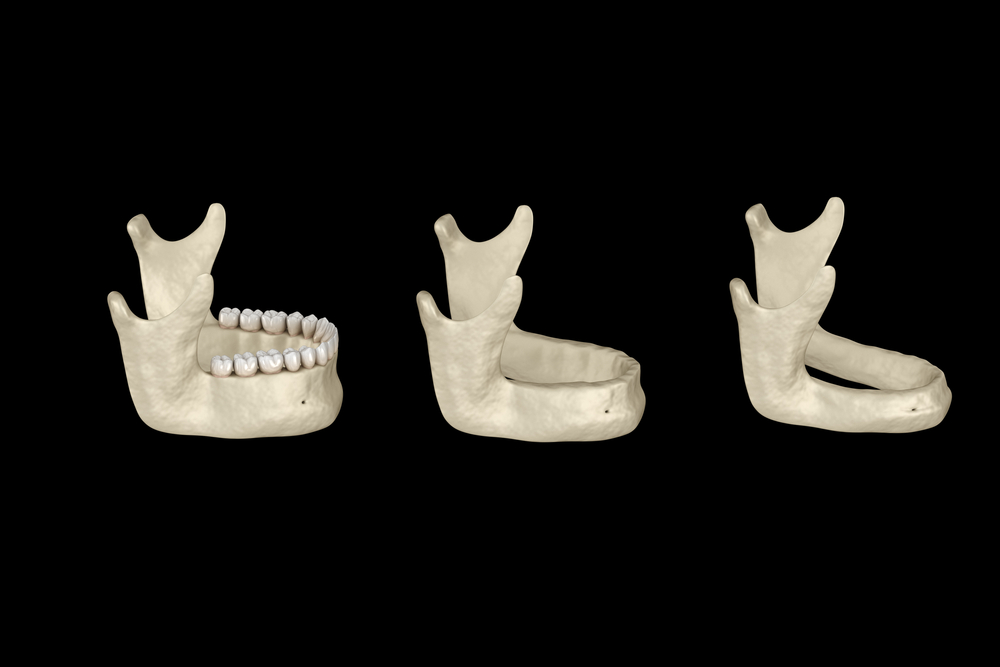Beyond Aesthetics: Why Tooth Loss Threatens More Than Your Smile
When you’re missing a tooth, you’re not just experiencing a cosmetic challenge—you’re facing a complex health issue with far-reaching consequences for your overall well-being. Missing teeth can dramatically impact your oral health, physical appearance, nutritional intake, and psychological state. Understanding these risks is the first step toward comprehensive dental restoration and maintaining your quality of life.
Learn more about the health implications of partial or complete tooth loss at Eggleston Dental Care, yourStanislaus County dental practice. Schedule an appointment withTurlock implant dentist, Dr. Jim Eggleston, by dialing 209-226-4963if you’re a new patient or 209-634-5871if you’re current.
Understanding the Cascading Effects of Tooth Loss
Tooth loss is more than a simple gap in your smile—it triggers a complex series of physiological changes that can compromise your oral and overall health. Each missing tooth sets in motion a chain reaction affecting bone density, adjacent teeth, jaw structure, and even your systemic health. There are three main categories of tooth loss:
Partial Tooth Loss
Partial tooth lossoccurs when a person is missing one tooth or some teeth, but still has healthy natural teeth remaining. Partial tooth loss can affect one or more areas of the mouth and may involve the loss of several adjacent teeth or scattered individual teeth.
Severe Tooth Loss
Severe tooth lossdescribes a condition where a significant number of teeth are missing, but some natural teeth are still present. Severe tooth loss can greatly impact chewing ability, speech, and facial appearance, often requiring more extensive dental interventions.
Complete Tooth Loss
Also known as edentulism, complete tooth loss refers to the loss of all natural teeth in either the upper jaw, lower jaw, or both. Complete tooth loss significantly affects oral function, nutrition, and overall quality of life, typically necessitating full dentures or implant-supported prosthetics.
Bone Density Deterioration: The Physiological Breakdown
Osteoclast Activation
When a tooth root is removed, special cells called osteoclasts immediately start breaking down bone tissue. The lack of regular pressure from chewing signals these cells to speed up bone removal. In the first three years after a tooth is lost or extracted, the jawbone density candecrease by up to 50 percent. This reduction in bone volume weakens the structural strength of the entire jaw area.
Biomechanical Stress Redistribution
Missing teeth change how force is distributed in your mouth when you chew. The remaining teeth experience more stressduring biting and chewing. Uneven pressure distribution causes faster wear on the teeth next to the gap. This misalignment of biting forces can lead to early tooth wear and possible tooth cracks or breaks.
Neuromuscular Adaptation Challenges
After tooth loss, your jaw muscles have to adjust to compensate for the missing teeth. This adjustment increases the risk of developing temporomandibular joint (TMJ) disorders, which affect the jaw joint. There’s also a higher chance of experiencing ongoing facial pain and imbalances in the muscles of your face and jaw. It is important to consult a dental specialist for managing TMJ disorders and other neuromuscular issues.
Dental Misalignment: Precision Structural Changes
Dental Migration Mechanisms
The teeth next to an empty space have a natural tendency to “drift” into that space. Tooth roots act as natural anchors; without them, the nearby teeth become less stable. Teeth can move both sideways and up or down through a precise process of cellular changes in the bone.
Periodontal Ligament Adaptations
The ligaments around your teeth, which hold them in place, start to change to adjust to new tooth positions. This can cause increased looseness of the adjacent teeth, potentially leading to long-term instability. As teeth shift, more of their root surfaces may become exposed, increasing the risk of decay and sensitivity.
Nutritional and Digestive Health Implications of Untreated Tooth Loss
Biochemical Nutritional Disruption
Your chewing efficiency decreasesby about 40-50 percent for each missing tooth. Less thorough chewing means the initial stage of digestion in your mouth is less effective. This reduction in chewing ability can lead to less efficient extraction of nutrients from your food.
Digestive Enzyme Interaction Complications
When food isn’t chewed properly, the enzymes in your digestive system can’t work as effectively. Your stomach may produce more acid to try to compensate for the larger food particles. This can potentially lead to poor absorption of important micronutrientslike iron, calcium, and vitamin B12.
Metabolic Stress Responses
Your body initiates adaptive changes in metabolism to deal with the altered nutritional intake. There may be an increase in inflammatory markersin your body due to the compromised nutrition. These changes could potentially increase your risk of developing metabolic syndrome, a cluster of conditions that increase your risk of heart disease, stroke, and diabetes.
Psychological and Social Impact of Untreated Tooth Loss
Neuropsychological Response Patterns
The ongoing stress from changes in your appearance due to missing teeth can lead to increased production of cortisol, a stress hormone. You might experience a decrease in feel-good neurotransmitters like serotonin and dopamine due to lowered self-esteem. There’s a higher chance of developing social anxiety disordersas a result of these changes.
Cognitive Processing Changes
Changes in your facial muscle movements can affect your ability to communicate non-verbally. Your brain might undergo neuroplastic changes – rewiring itself – in how it processes social interactions. A reduced range of facial expressions can impact your ability to communicate emotionseffectively.
Long-Term Health Risks of Untreated Tooth Loss
Systemic Inflammatory Cascades
Missing teeth can create a persistent, low-level state of inflammation in your body. This leads to increased production of pro-inflammatory cytokines, which are signaling molecules involved in inflammation. These inflammatory processes could potentially speed up age-related degenerative processes in your body.
Cardiovascular Interaction Mechanisms
The movement of bacteria from your mouth to other parts of your body increases the risk of cardiovascular disease. There’s a higher potential for endothelial dysfunction, which affects the lining of your blood vessels. You may experience increased platelet aggregation, which means your blood cells are more likely to clump together, potentially leading to blood clots.
Gum Disease and Its Connection to Missing Teeth
Gum disease, also known as periodontal disease, is a common problem that can arise when teeth are missing. The gaps left by missing teeth can become breeding grounds for bacteria, leading to inflammation and infection of the gums. This can result in pain, swelling, and bleeding, making it difficult to maintain good oral hygiene.
If left untreated, gum disease can progress to more severe stages, potentially leading to further tooth loss and even affecting your overall health. The bacteria from gum disease can enter the bloodstream, increasing the risk of systemic conditions such as heart disease and diabetes.
Financial Implications of Tooth Loss
Tooth loss can have significant financial implications, affecting not only the cost of replacing missing teeth but also the cost of treating related health problems. The expenses associated with dental care can add up quickly, making it important to consider the long-term financial impact of tooth loss.
Restoring Health and Confidence Through Advanced Dental Technology
Dental implants represent far more than a cosmetic solution—they are a sophisticated medical intervention that comprehensively addresses the multifaceted health challenges created by tooth loss. At Eggleston Dental Care, we view dental implants as a precision medical treatment that restores not just your smile, but your overall physiological well-being.
Bone Preservation: Halting Destructive Bone Resorption
The implant acts as a revolutionary artificial tooth root, providing continuous mechanical stimulation to the jawbone. This precise intervention triggers natural bone regeneration through sophisticated cellular signaling, effectively stopping and potentially reversing bone resorptionprocesses. By maintaining critical jaw structure, dental implants prevent facial structural collapse and eliminate the risks associated with long-term bone density loss.
Nutritional Restoration: Rebuilding Digestive Functionality
Dental implants comprehensively restore nutritional intake capabilitiesby providing chewing functionality equivalent to natural teeth. Patients can once again consume a full range of nutritionally dense foods, enabling proper mechanical food breakdown and optimal digestive enzyme activation. This restoration eliminates nutritional compensatory mechanisms, reduces inflammatory markers associated with poor nutrition, and supports balanced metabolic function.
Psychological and Social Rehabilitation
Beyond physical restoration, dental implants provide profound psychological benefits. Patients experience an immediate improvement in self-perception and social confidence, with the restoration of natural facial muscle movements and elimination of speech impediments. The intervention reduces social anxiety associated with tooth loss, normalizes social interaction capabilities, and enhances overall non-verbal communication effectiveness.
Frequently Asked Questions
How quickly does bone loss occur after tooth extraction?
Can missing teeth impact my overall health?
What are the most common causes of tooth loss?
How do dental implants address these comprehensive health risks?
Are there preventative measures against tooth loss?
Take Action: Protect Your Oral and Overall Health With Dental Implants!
At Eggleston Dental Care, we understand that missing teeth represent more than a simple dental challenge. Our comprehensive approach to dentistry addresses the multifaceted health implications of tooth loss.
Contact Eggleston Dental Careby dialing (209) 226-4963if you’re a new patient or 209-634-5871if you’re current, and schedule your comprehensive oral health consultation. We proudly serve patients from Turlock, CA, and surrounding communities like Keyes, Denair, and Hatch. Dr. Eggleston and our entire team are committed to helping you maintain optimal dental health and a confident smile.

